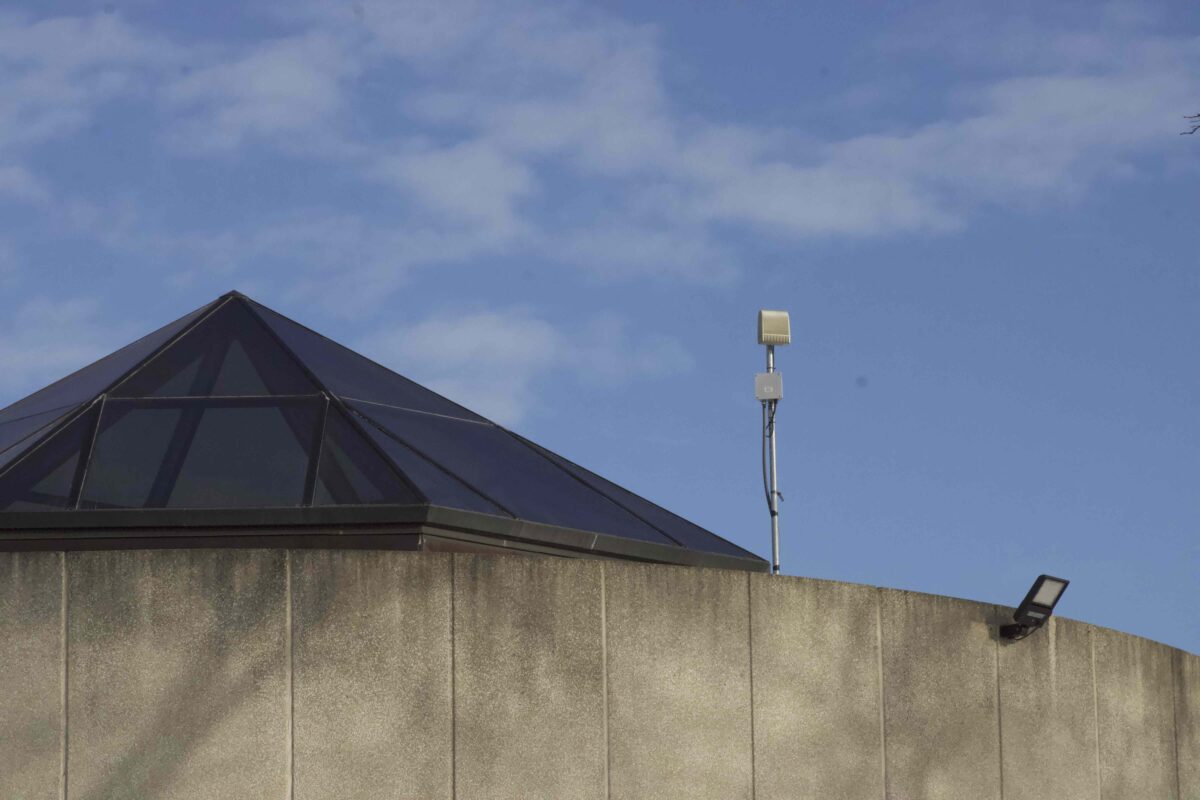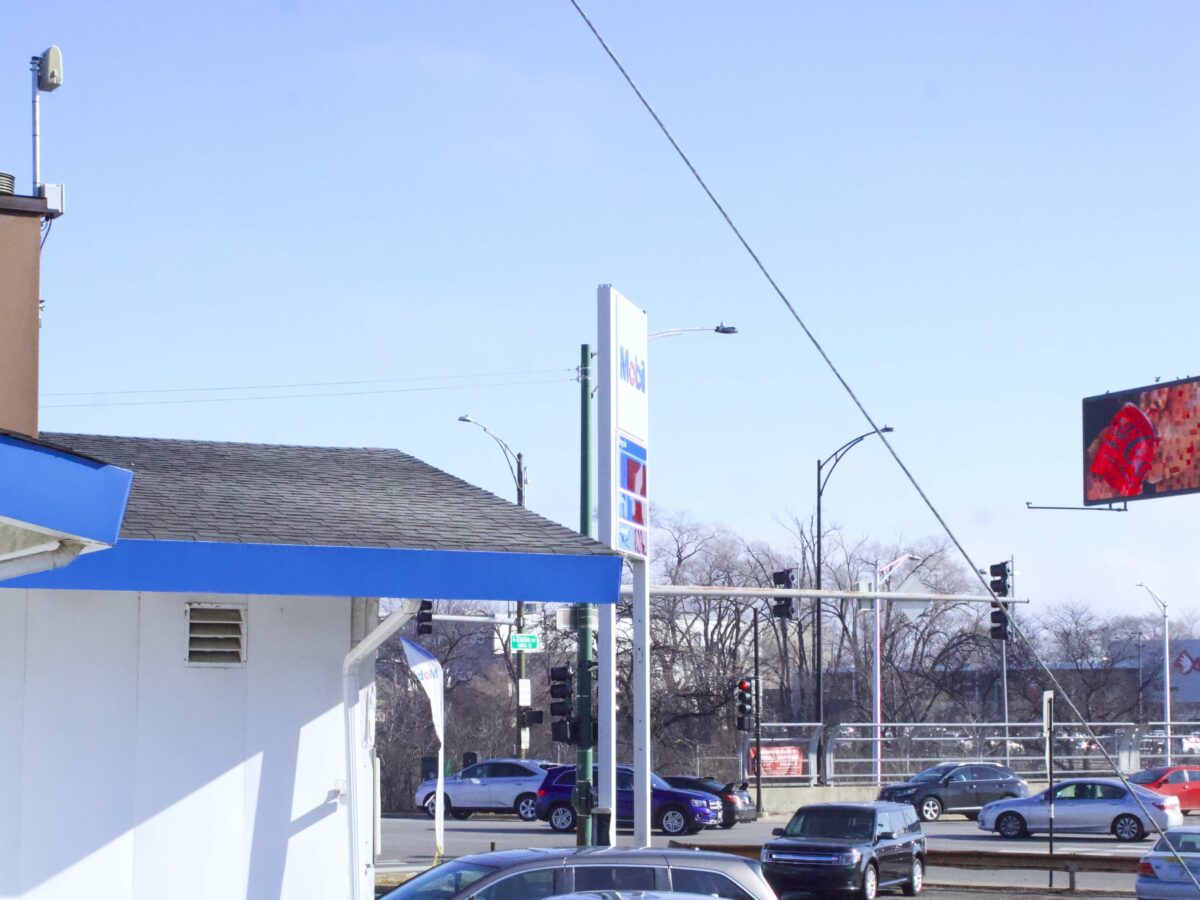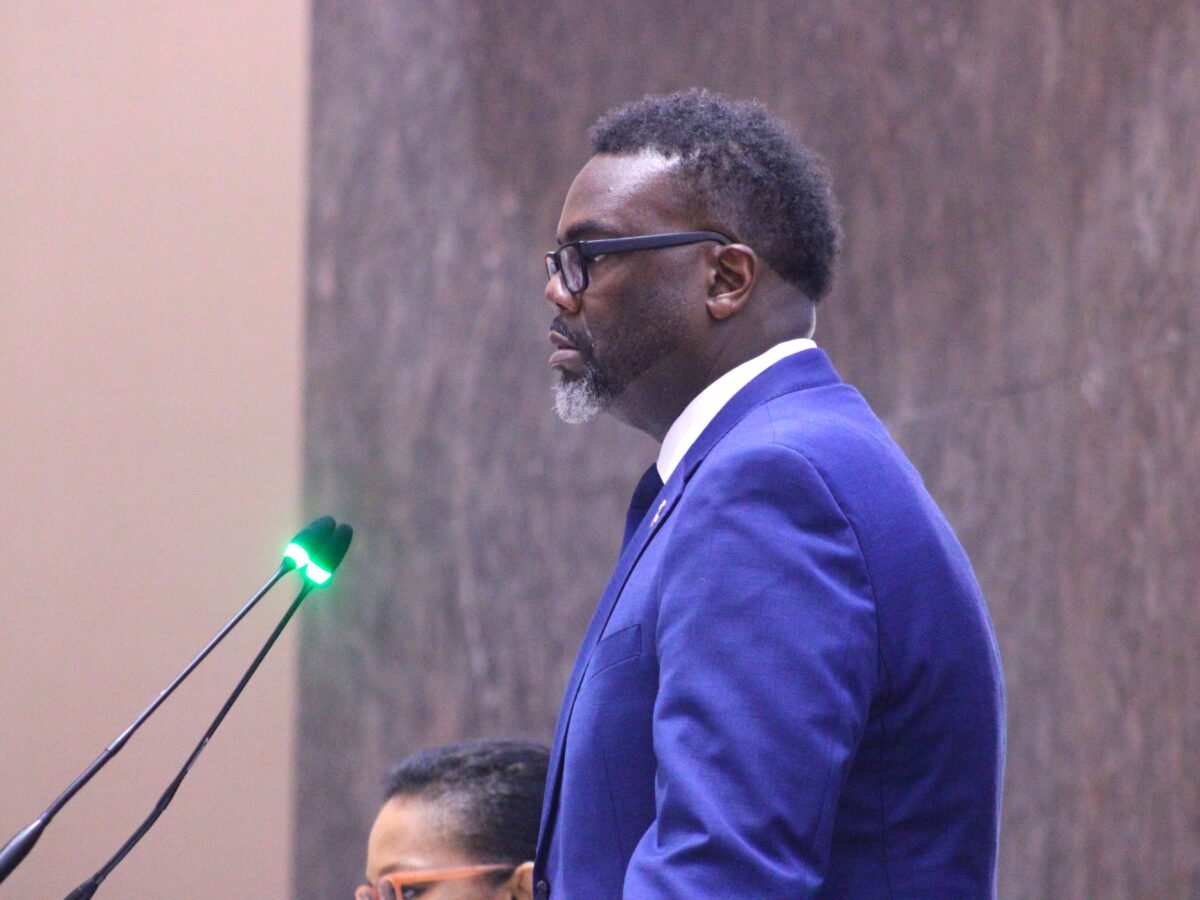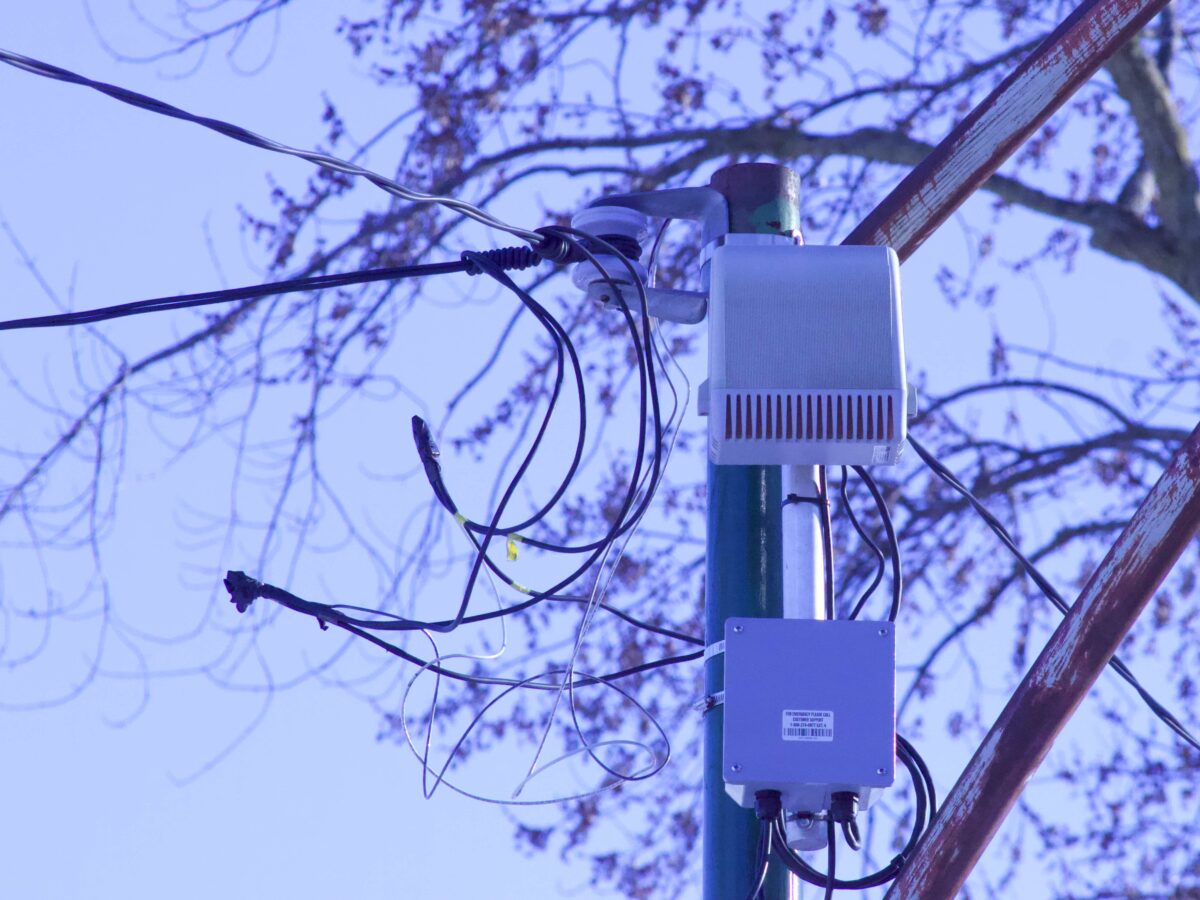After a week that saw Mayor Brandon Johnson announce that he will not renew its contract with ShotSpotter, the company push back on that claim, and a tumultuous press conference in which the mayor sparred with reporters, Chicago finally has an end date for its contract with the controversial gunshot-detection technology. The contract expires on Friday, but will be extended through November to allow the police to transition away from relying on ShotSpotter.
In a press release Tuesday, the Mayor’s Office said the city “will decommission the use of ShotSpotter technology on September 22, 2024.”
The statement added: “During the interim period, law enforcement and other community safety stakeholders will assess tools and programs that effectively increase both safety and trust, and issue recommendations to that effect.” The Chicago Police Department (CPD) will “revamp operations” in its Strategic Decision Support Centers—tech-heavy hubs in every police district that process incoming surveillance—to “ultimately reduce shootings and increase accountability.”
But on Thursday, the Sun–Times reported that ShotSpotter (which rebranded itself as SoundThinking last year) issued a statement saying the company had not agreed to Johnson’s September decommissioning date and could terminate its coverage of Chicago when the contract expires.
The next day, the Mayor’s Office and ShotSpotter announced they had reached an agreement that will extend the contract through November. The agreement was reached “In an effort to avoid any disruption in the critical ShotSpotter service to the citizens of Chicago,” a company spokesperson wrote in a statement. “SoundThinking will also continue to collaborate with the Chicago Police Department to develop the best possible metrics and analytics to drive transparency and optimize reporting.”
In November, the Weekly reported that ShotSpotter CEO Ralph Clark told investors on an earnings call that Johnson’s 2024 budget included funding for gunshot detection technology. A line item for software maintenance and licensing for the Office of Public Safety Administration at $8,967,998 is listed in the budget as coming from the city’s emergency communication fund.
Following the mayor’s announcement, Clark provided a statement to the Weekly that emphasized what he called “the importance of this technology and the positive impact it continues to make for the residents of Chicago.” Clark said ShotSpotter’s “value is in lives saved” and claimed the technology “has led police to locate hundreds of gunshot victims where there was no corresponding call to 9-1-1. Those are victims who most likely would not have received aid—if not for ShotSpotter.”
Mayoral adviser Jason Lee said Tuesday that the administration picked September 22 because the CPD was worried about “discontinuity of operations” if ShotSpotter was terminated sooner due to “the stressors on the department this summer,” such as the Democratic National Convention (DNC), which will be held at the United Center in August.
“The DNC factored in from a standpoint of capacity,” Lee said. “You want to give yourself time to ensure everyone’s fully trained, get their ducks in a row, so that when tech is turned off, there isn’t an operational discontinuity.”
The announcement comes after years of organizing by activists with the Stop ShotSpotter campaign and multiple studies that questioned the technology’s effectiveness and its impact on marginalized communities. In 2021, the city’s Office of the Inspector General (OIG) found that fewer than ten percent of Shotspotter’s gunshot alerts led to documented evidence of a gun-related crime. The report also found police showed a pattern of stopping and frisking people more often in areas they thought had elevated numbers of ShotSpotter alerts.
Last week, Stop ShotSpotter campaign organizers’ efforts culminated in a public meeting held by the Community Commission on Public Safety and Accountability (CCPSA) at St. Sabina church in Auburn Gresham. Nathan Palmer, a member of the campaign, was a panelist along with ShotSpotter’s CEO, CPD representatives, community violence-prevention workers, and CCPSA commissioners.
Following Johnson’s announcement, United Working Families executive director Kennedy Bartley issued a statement that called the mayor’s decision a “huge step forward in [Chicago’s] approach to safety—progress made possible only through years of organizing by the Stop ShotSpotter Coalition.” That organizing “honors the lives” of Adam Toledo, who was killed by a CPD officer who was responding to a ShotSpotter alert, and others, the statement read.
Related story
Missed Shots
The Stop ShotSpotter campaign also lauded the mayor’s decision.
“This decision is an unprecedented one which wasn’t possible before Mayor Johnson, but we will continue to organize until all of ShotSpotter’s microphones are removed from Chicago,” read a statement issued by the campaign. “We deserve life-affirming investments, such as PeaceBook and Treatment Not Trauma, in our communities. …We will continue engaging and working alongside directly and deeply impacted community members to identify their immediate and long-term needs in addressing gun violence and healing from its effects.”
Last week, the Weekly reported that ShotSpotter operates microphones outside its contractual coverage area that monitor areas around billboards owned by JCDecaux. A ShotSpotter spokesperson said this additional coverage was provided “at no charge to anyone,” including the city. Lee said he was unaware of these microphones and did not know whether they would be decommissioned along with those in ShotSpotter’s main coverage area in September.
The seven-month interim period leaves room for the city to adjust its approach to public safety before it decommissions its use of ShotSpotter.
Two sources familiar with the process told the Weekly that a new request for proposals (RFPs) for gunshot-detection technology has been in the works for some time. There are currently no open bids for an acoustic gunshot detection system, and RFPs typically take weeks or months to evaluate, according to Block Club.
On Tuesday, Lee said he was “not aware of any of that” but would not rule out the possibility the city could hire a new vendor to replace ShotSpotter. “I’m not aware of any conversation about contracting with any [gunshot detection technology] vendor,” he said. “There’s no plan to issue an RFP for any gunshot detection technology at this time,” he said.
“People write RFPs all the time and a lot of the time they never go out,” Lee said. “We’ve been clear about what this mayor’s intentions are…which is [to] terminate the use of ShotSpotter in September. In the meantime, we’ll make sure there’s a streamlined process around other opportunities for investment. There’s a whole host of things we can invest money in for public safety.”
A press conference on Thursday grew contentious at times as reporters repeatedly pressed the mayor on the ShotSpotter contract and funding for migrant support, and the mayor repeatedly declined to directly answer questions. When a WBEZ reporter asked if the city was considering other gunshot-detection vendor, the mayor said, “No.”
At a February 21 press conference, a WTTW reporter asked Johnson what “the deciding factor” was in canceling the contract. “With this particular form of technology, there has been a series of investigations and reports that have indicated that the return on that investment…hasn’t yielded the results it promised,” Johnson said. “It really came down to: Is [ShotSpotter] providing a real, true benefit in which it promised to do, and unfortunately, report after report here in the city of Chicago has indicated otherwise.”
This story was originally published on February 14, 2024, and updated as the story developed.
Jim Daley is the Weekly’s investigations editor.





